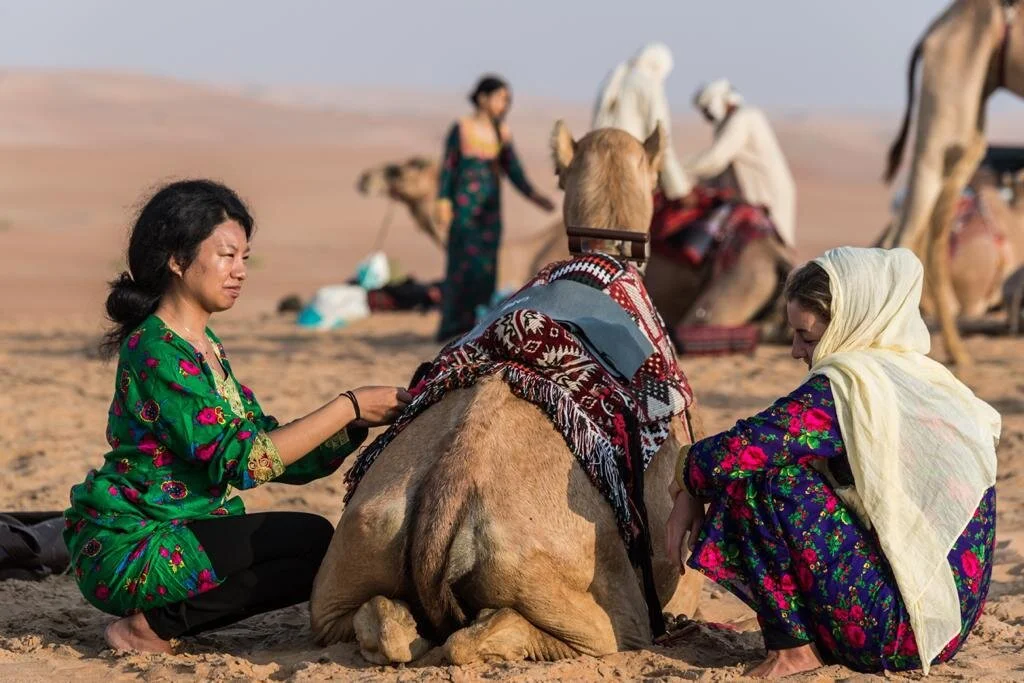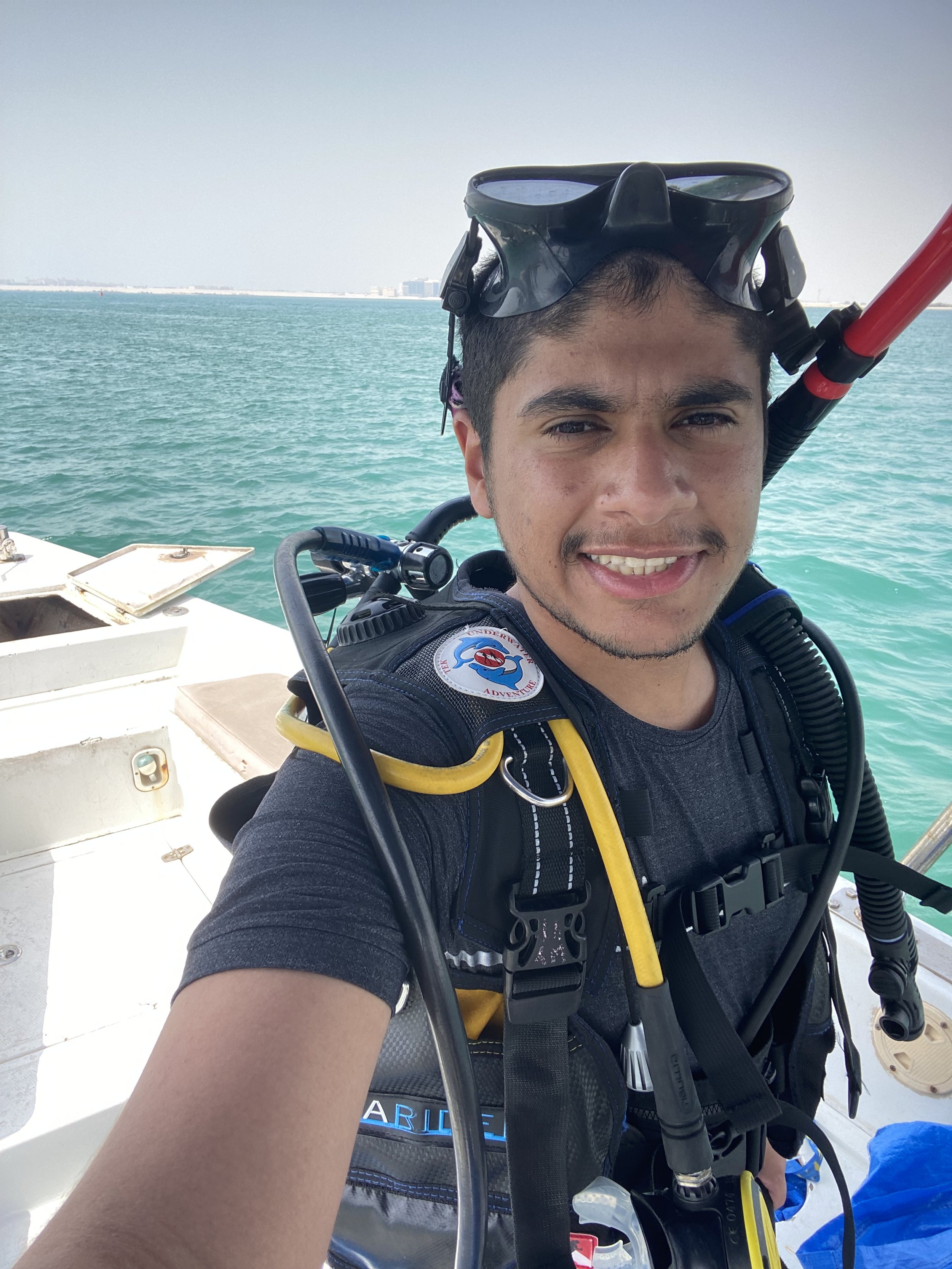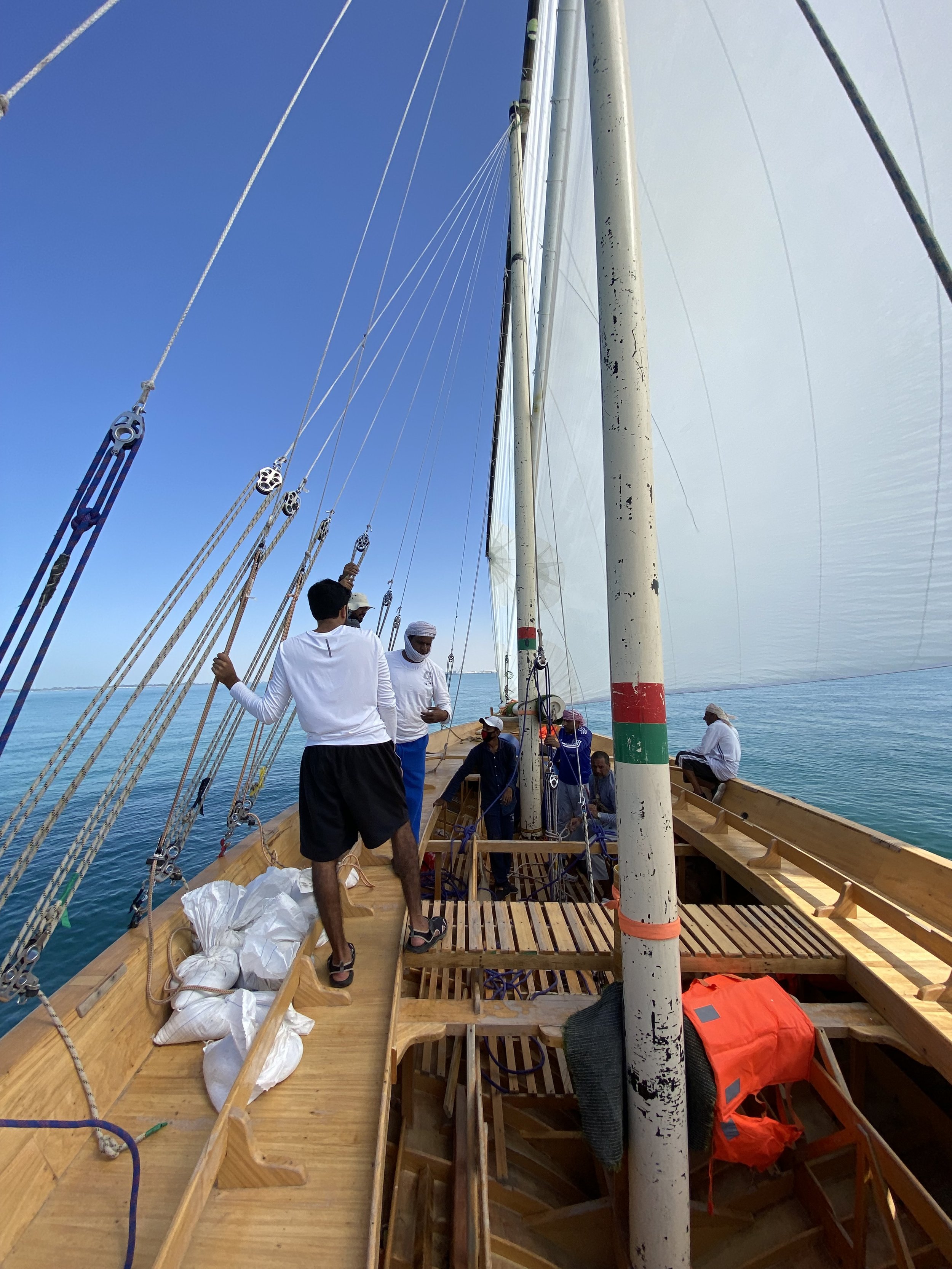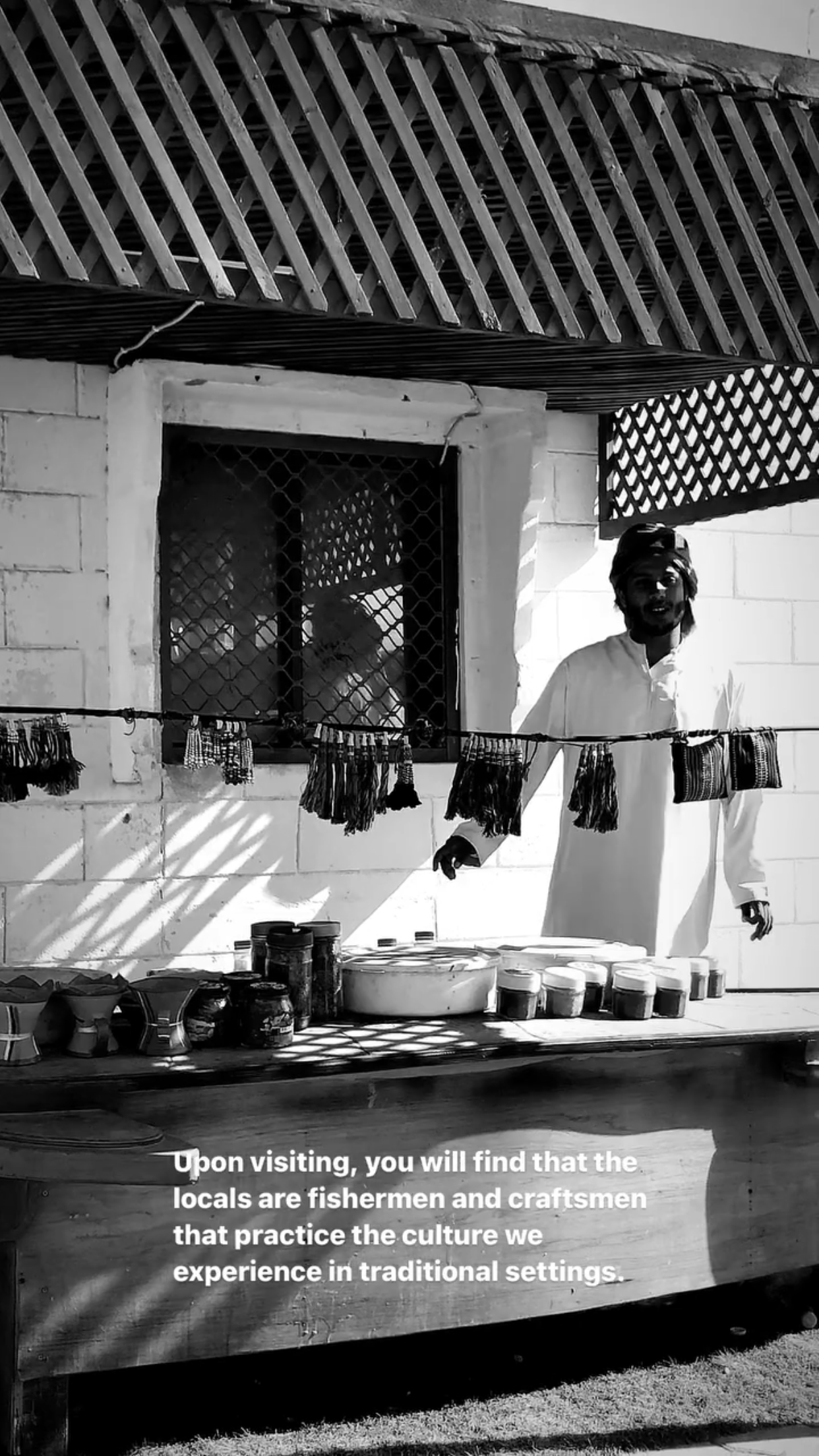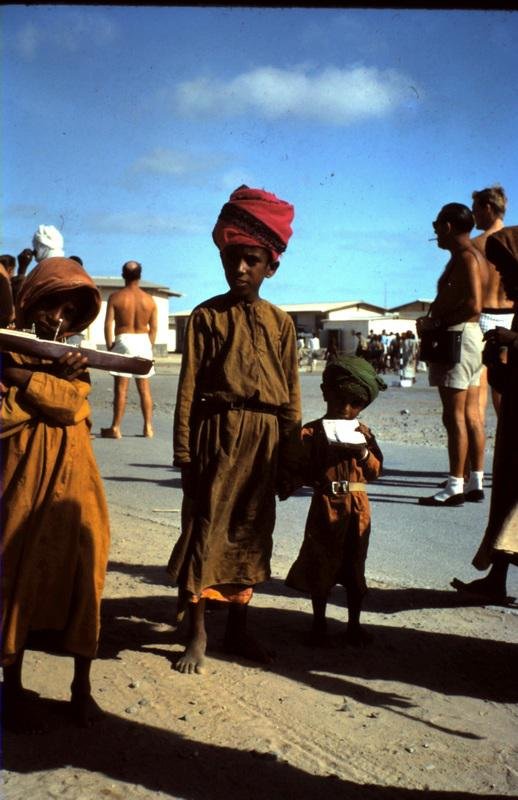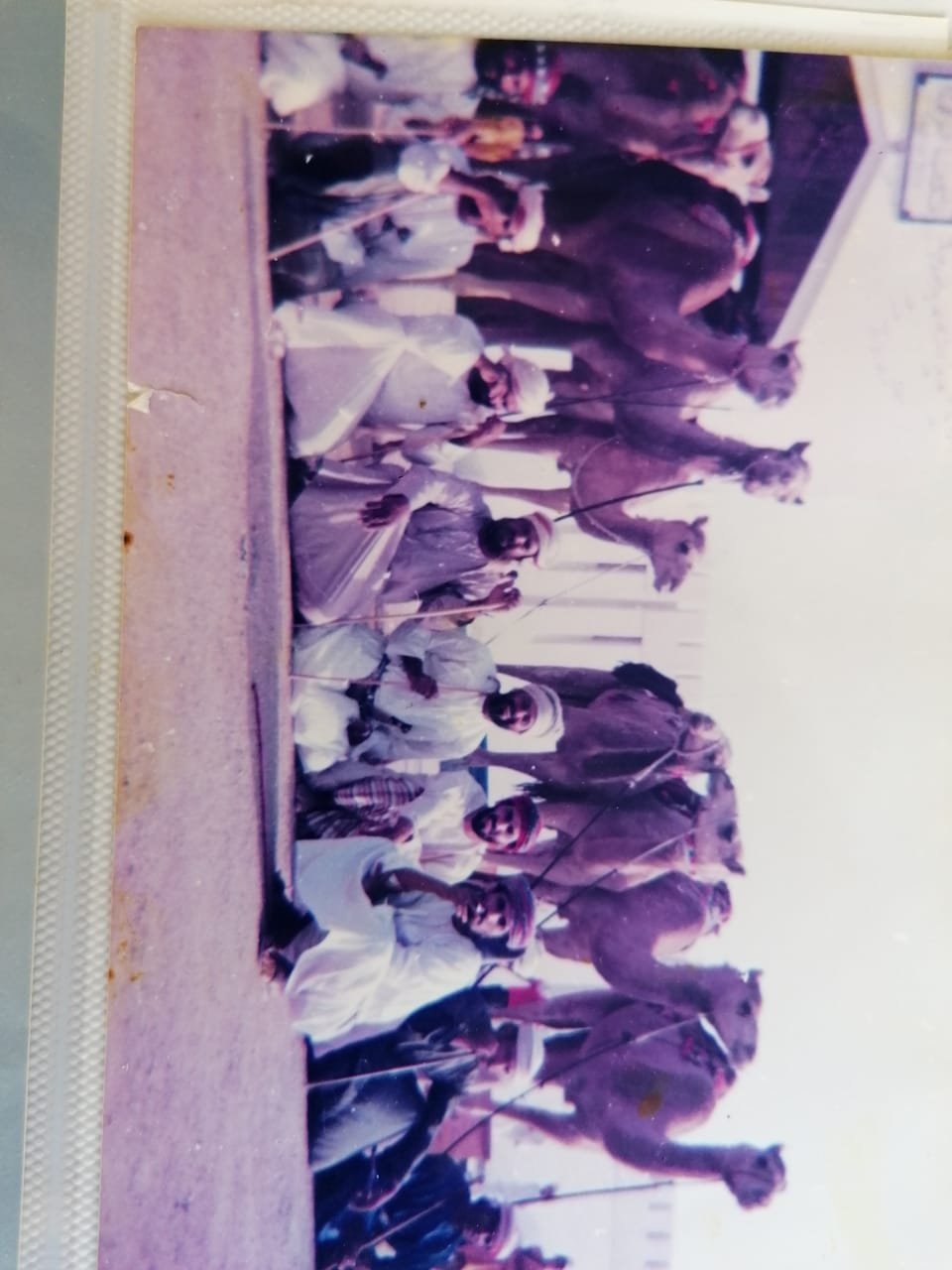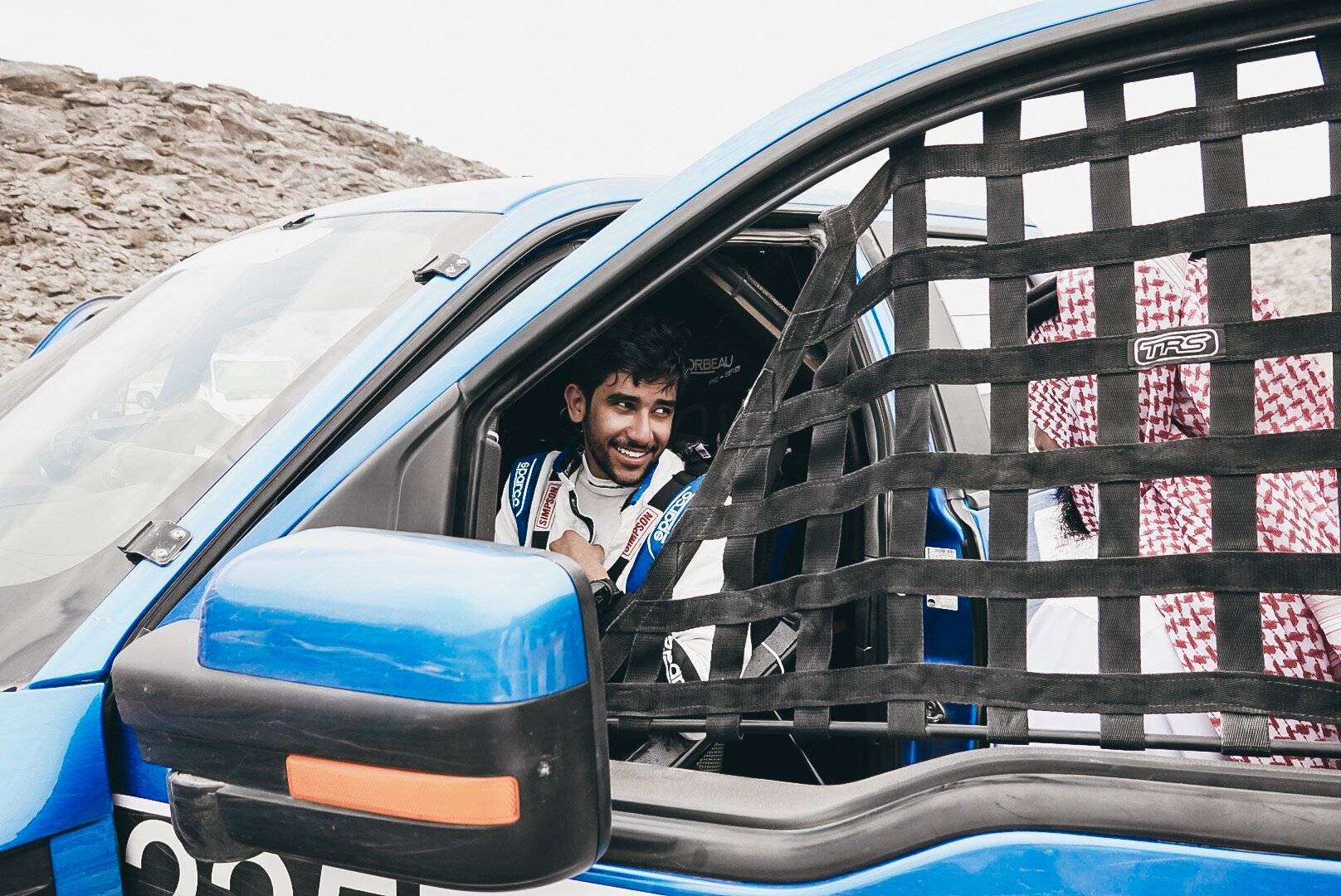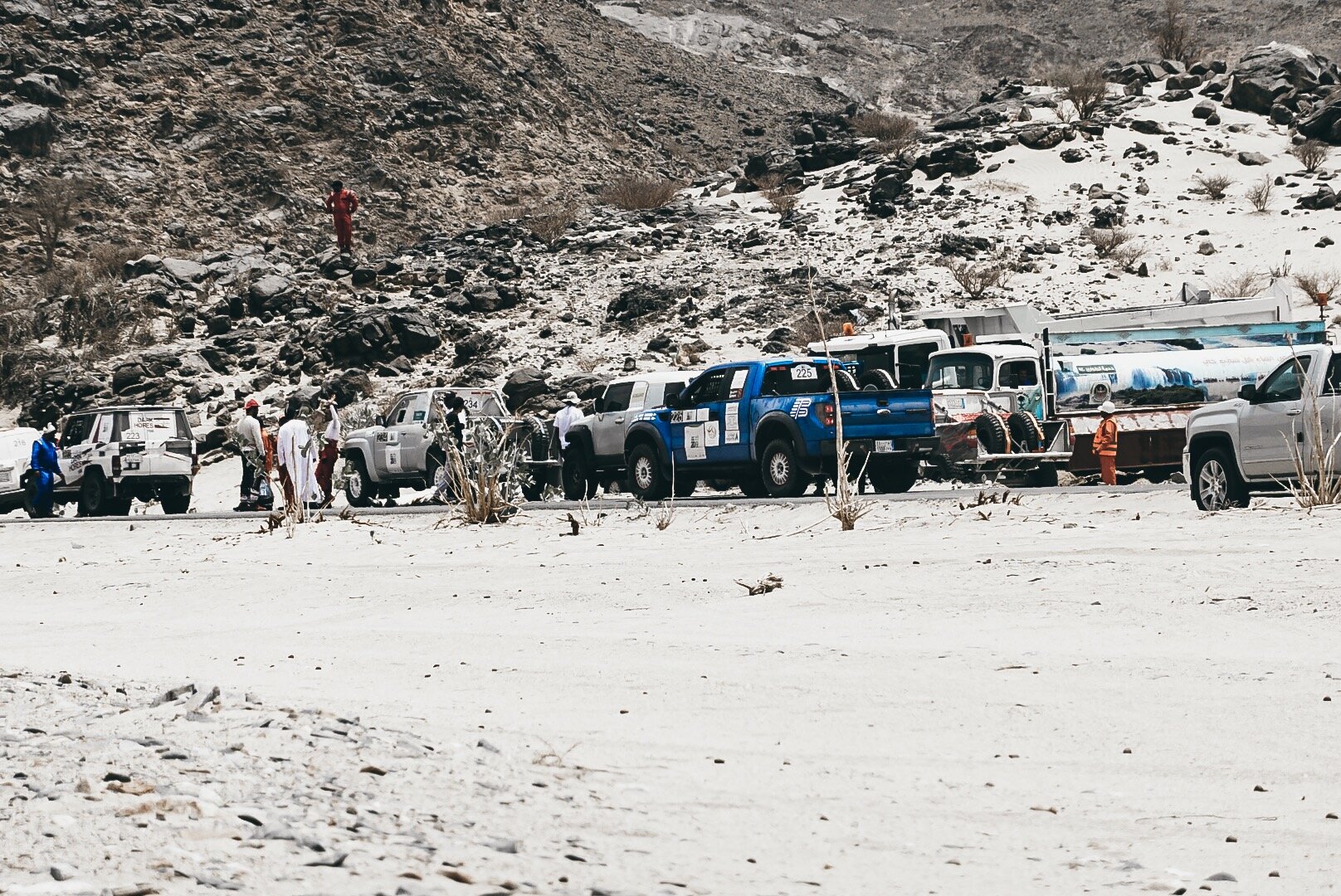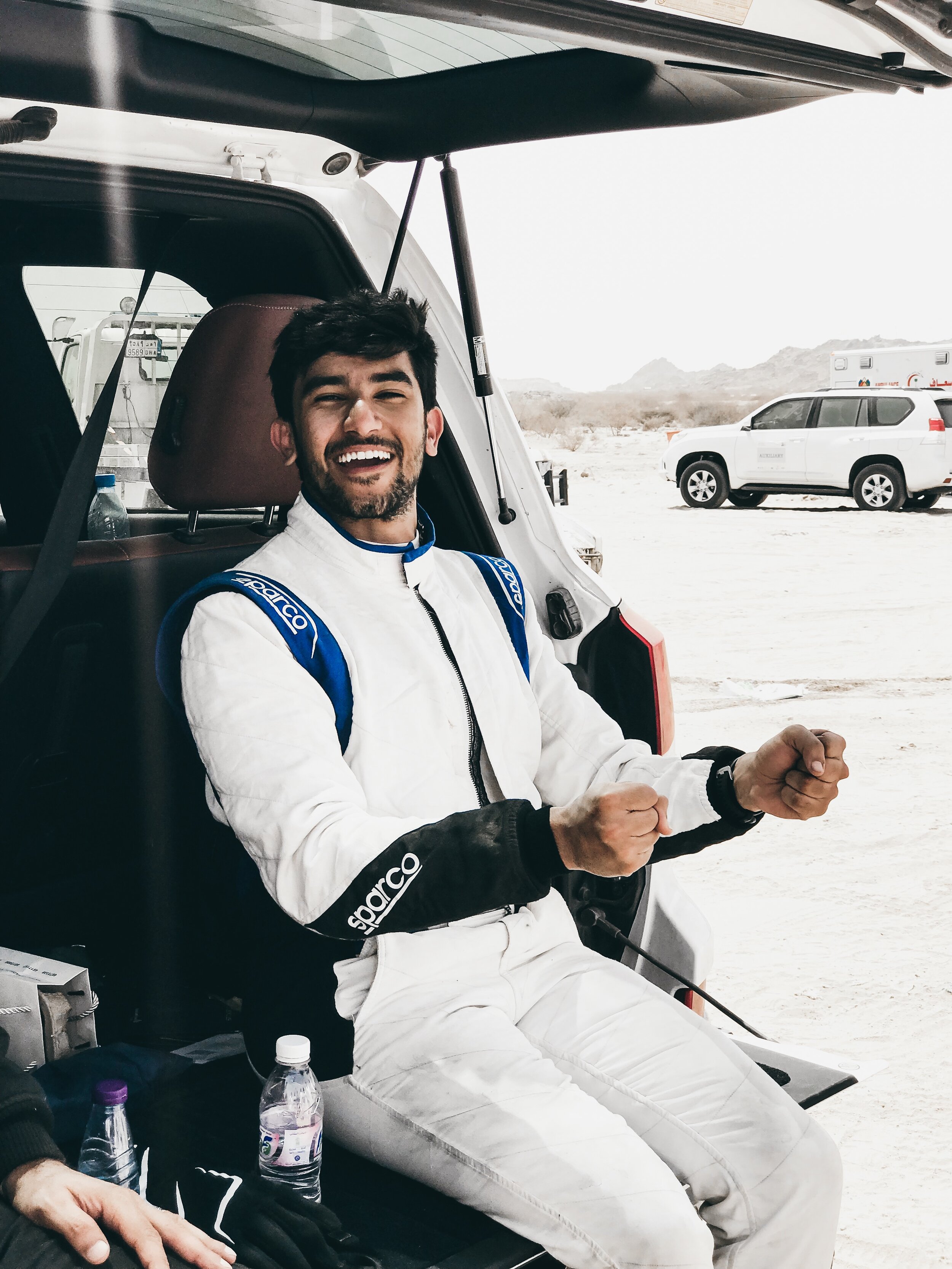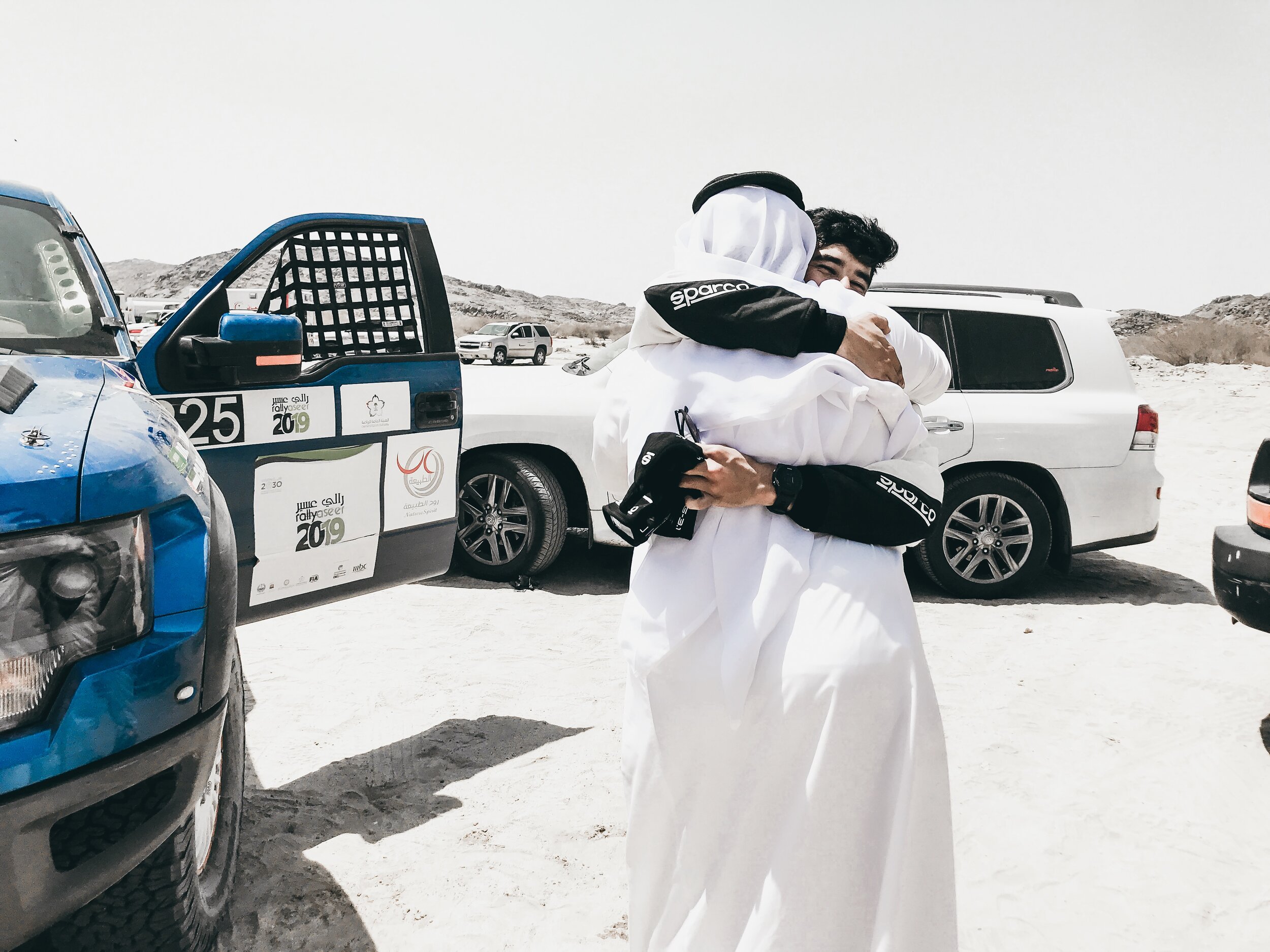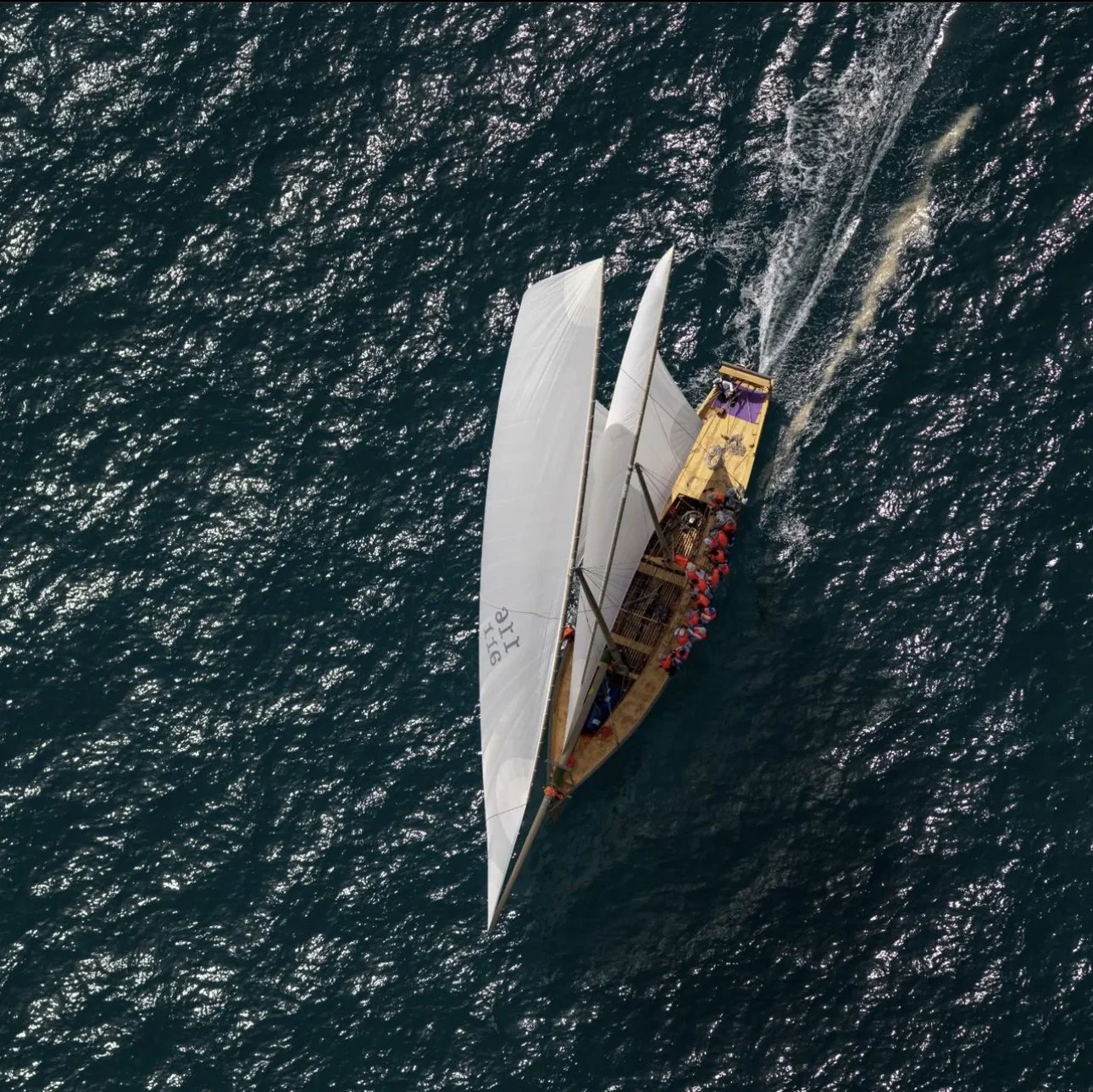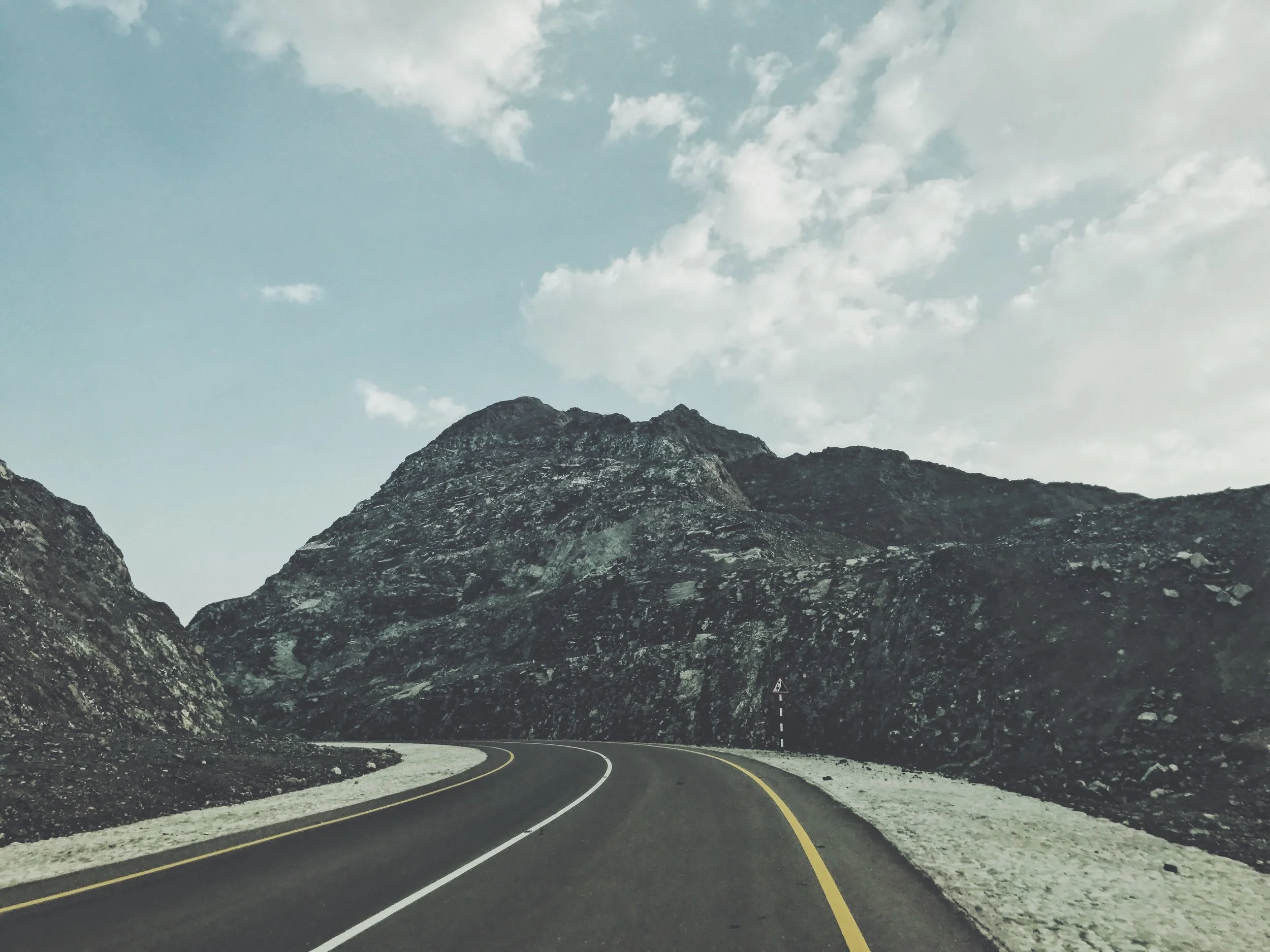Relatively indecisive, a churning lust for pushing thresholds and an extreme desire to achieve past the mundane - this is Talal Al Badr’s journey to Dakar Saudi Arabia where he sees a fight against race teams but more realistically himself. In his own words, “I needed to get to know the voice in my head,” as he described his training and mental alignment towards the first international rally to take place on Middle Eastern soil.
In April 2019, Talal wrote “I think I don’t need to get in this year, maybe it’s best if I read, so let’s do a reading list and also start working on getting our driving skills up. Maybe this time next year I buy the car. So you have one year. This is my clear motivation. What after then? No idea, that’s what I want to do though, that’s my goal. If it happens great, if it does not, then something else will happen.” In November 2019, Talal wrote “...need a full face helmet and FIA cold underwear.” In less than 8 months, what was only a thought turned into a two year plan which then lobbied into a 2 month preparation scheme. Talal found himself registering to compete in Dakar 2020 with only a few months to wrap his head around the complexities of racing, let alone an enduring 800km per day race across the terrains of Saudi Arabia. This is the sort of journey we relish, the one that will push you to the end and show you there is more. As we once described, it is like being thrusted into an airborne position with your eyes closed and a handful of concern - only to make it to the other side.
“Count your blessings, not your cash,” Al Badr said as he described his approach to sponsorships, operating costs of participation and making it to the finish line. “I needed to get people to vouch for me, more so for myself than for the race. Abdulaziz, who is my confidant, believes in me - he says “yeah you will do that, no doubt, what’s next though? Because I know you’ll do it”. I do what I say I’m going to do. Maybe if I drove properly and finished, I would have more sponsors next year?”. What fascinated us most about this story is the internal dialogue that allowed him to visualize, understand and more importantly meet the person he needs to be on race days. In some of the notes you will find scattered writings like “hold your pee for one hour from when you need to pee” and “...remember, you’ve been through worse situations. And this will end, it’s just a game.”. All in an effort to compete with his older self more than the Dakar racers.
Having delved into the internal thoughts, uncovering what the journey depicts itself as to the individual - we must regard the experiences with the outside world when Talal steps on ground to share space and time with the people around him. On race day, he shows up with purpose, ambition and like we said, an indecisive decision to win. All the wake up calls, the cold showers, the timed progression, meeting the pain past the threshold were put into play now. This is game day.
In 12 days and about 8000kms, each participating team was to complete every day successfully to move to the next round. This encompasses team synergy, car mechanics, navigation and staying alive. “It’s going to be a long rally, and at times you will hate yourself. But remember what it took to be here,” he says as he straps himself into what seems to be a tight cockpit of a heavily modified truck that’s about to throw him around the country to achieve his dreams. The importance of this message is in its value of inciting movement, showing up to that which you believe and consistently challenging the norm of yourself before your surroundings. Talal is like you, he is like me, we are all of the same thread. Humans with minds and hearts with passion, the only difference is in the execution. He embraced, accepted and paved his own way in recording his existence. He showed up for himself.
In momentary gaps throughout the chaos of racing, Talal engages with various racers and lives to share the advice whereas he is told to “drive like your mother” and “slow and steady finishes the race” from people that have raced and navigated across the global such as Lucas Cruz and Carlos Sainz. “You can never be prepared for Dakar,” Sainz says to the youngest Saudi Arabian racer on ground. The seatbelts strapped and the saying goes, “because it’s your country. Because of this long story, and you’re here because you are meant to be here.”
Jeddah, Neom, Al Wajh, Al Ula, city after city, bivouac after bivouac, day in and day out. The sun rises, it sets, the kilometeres are being put in. The engine is failing. Battery. The car battery on the first day. The scenery is beautiful. Did my uncle call me today? Told me to take care of myself. Getting a bit tired, at times thinking if this is all worth it. Arrived in the cold.
What do I do now? Where do I go from here?
“It’s crazy. I mean, I don’t know where I thought I was going. But I THINK I felt great,” when asked to reflect on reaching the pinnacle of what he dreamed. See, the journey is straight forward. There is a goal and there is a way. You set the way according to your circumstances and resources and the goal will reveal itself if synergy among these variables are met. What goes untold and can only be reflected on in hindsight is the influx of emotion. That moment you stand where you visualized. That moment the thought lingers inside with the voice that says, “you are accomplished”. Talal was waiting for that, he sought that churning gut feeling of anxiety and excitement. He sought it for himself and not for the world - when sought for self, the world is able to feed on the abundance of authentic experiences, new thresholds and the calm within the storm. This is our learning, Wander.


